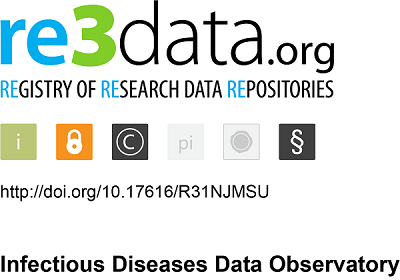Making data sharing F.A.I.R.
IDDO follows the ‘FAIR Guiding Principles for scientific data management and stewardship’. Published in 2016, these guidelines increase the Findability, Accessibility, Interoperability, and Reuse of data. Discover IDDO’s FAIR practices below.

IDDO and digital object identifiers
To make data more Findable, Accessible and Reusable, IDDO assigns and promotes persistent identifiers - Digital Object Identifiers (DOIs) – to IDDO-hosted studies. This pioneering initiative promotes academic credit, direct citation and tangible metrics for researchers who collect and share data.
DOIs contain metadata that identify and acknowledge the staff and sites that contribute to the dataset, as well as information on location of the study, funders, and publications or documents associated with the data. DOIs ensure the long-term persistence of study metadata via a permanent URL. Assigning these to IDDO-hosted studies enables the tracking of data re-use through citations and publications that reference the study DOI.
Anyone using the data for new analyses has to cite the DOI, as required by IDDO’s data use agreement, driving trackable academic metrics for the re-use of data and the acknowledgement of the data source. The DOI also makes the data Findable by people and machines searching the internet, publication archives or search engines such as Google Dataset Search. IDDO includes information about how data are shared and licensed in the DOI information – making the data more Accessible and Reusable.
DOIs are minted via DataCite for each COVID-19 and Ebola dataset shared with IDDO. DOIs are linked to the individual researchers who create the dataset through their Open Researcher and Contributor Identifier (ORCIDs), and the Contributor Roles Taxonomy (CRediT) defined by each site to enable the retrieval of data re-use metrics.
IDDO is committed to ensuring that its infrastructure and systems boost the findability, accessibility, interoperability, and re-use of data in accordance with FAIR principles to facilitate the use of existing data to answer new research questions and maximise the production of new knowledge. DOIs will soon be displayed in the IDDO interactive inventory, increasing the persistent findability of the study data and documentation.
IDDO Data Standards
IDDO increases the Interoperability of data hosted on the IDDO platform through rigorous data standards. View our data resources.
IDDO data sharing registrations


IDDO is registered as a re3.org data repository. Find out more